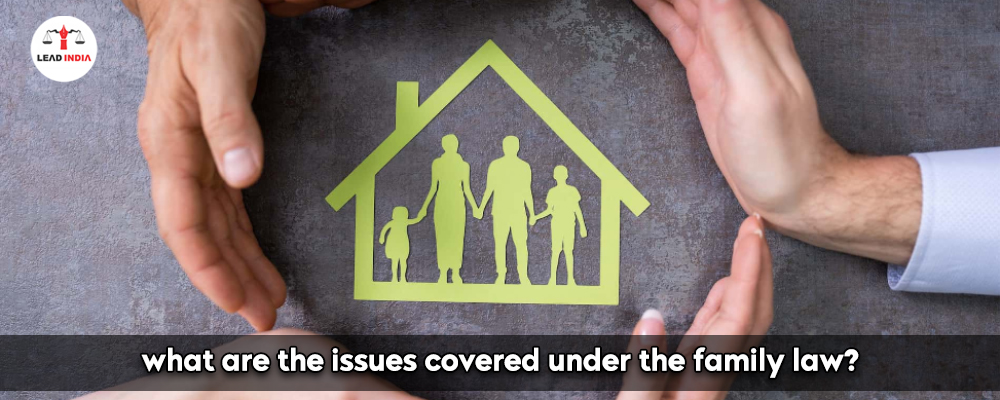What is Family Law?
Family law could be understood as the legal practice area dealing with matters which are related to family relationships as well as domestic issues. It includes a wide range of issues, such as marriage, divorce, child custody, adoption, property division, spousal support, and more. Family law deals with legal matters arising within families and impacts the rights and responsibilities of the family members.
Laws Governing the Family Laws?
Family laws in India are basically governed by different acts and regulations, which include:
- Hindu Marriage Act, 1955
- Muslim Personal Law (Shariat) Application Act, 1937
- Special Marriage Act, 1954
- Indian Divorce Act, 1869 (for Christians)
- Domestic Violence Act, 2005
- Guardians and Wards Act, 1890
- Child Marriage Restraint Act, 1929
- Adoption Regulations under the Juvenile Justice Act, 2015
And other state-specific family laws and customs.
Need A Legal Advice
The internet is not a lawyer and neither are you. Talk to a real lawyer about your legal issue

Annulment of Marriage
Annulment is the term used while making a voidable marriage declared as null. But when the marriage is void ab initio, you may contact us at Lead India so that we could assist you with moving to a Court of competent jurisdiction so as to get a declaration of annulment.
Contested Divorce
In contested divorce cases, one party will be interested to seek divorce while the other does not wish to. The divorce in such a case could be sought on the grounds of fault or guilt by one of the parties to the marriage.
Divorce by Mutual Consent
- In a mutual consent divorce case, the husband and the wife shall mutually agree to separate and end their marriage. Provided under Section- 13B of the Hindu Marriage Act, 1955, a provision is provided for mutual consent divorce where certain conditions are required to be satisfied by the parties in order to get a divorce.
- The option of consent divorce has been provided under Section- 28 of the Special Marriage Act, 1954 and Section- 10A of the Divorce Act, 1869.
- These joint petitions will generally be required to be filed before a District Court under whose jurisdiction the marriage was solemnized or the court where both the parties last resided together. Presence of both the parties during first motion and the second motion will be mandatory.
Solemnization of Marriage under numerous laws
- Under the Special Marriage Act, a special form of marriage has been provisioned for the couples, who belong to different religions, or desire to have a civil form of marriage.
- The Act provides for the solemnization and registration of marriages which can not be solemnized under the numerous religious customs.
- Say for example: Indian citizens who follow different religions could get married as per the Act. Even an Indian Citizen as well his/ her foreign national partner may get married under the Act. Even two Foreign Nationals will have the option of getting their marriage solemnized and registered under the said Act.
- Apart from the Court Marriage provided under the SPecial Marriage Act as discussed above, the couple could get married by following their personal traditions.
Guardianship and Custody
- Provides for the guardianship of minor children, in case the parents are getting divorced or are no more.
- As per Section 19 of the Guardians and Wards Act, 1890 a father or a husband of a minor child or a minor wife respectively could be deprived of their natural guardianship if the court finds them to be unfit to take care of the minor child or wife.
Apart from the different sections discussed above, Family Law includes topics such as maintenance, domestic violence, 498-A etc. Thus, if you wish to talk to a lawyer or seek free legal advice online for matters discussed above, you may contact us at Lead India.





 Talk to a Lawyer
Talk to a Lawyer